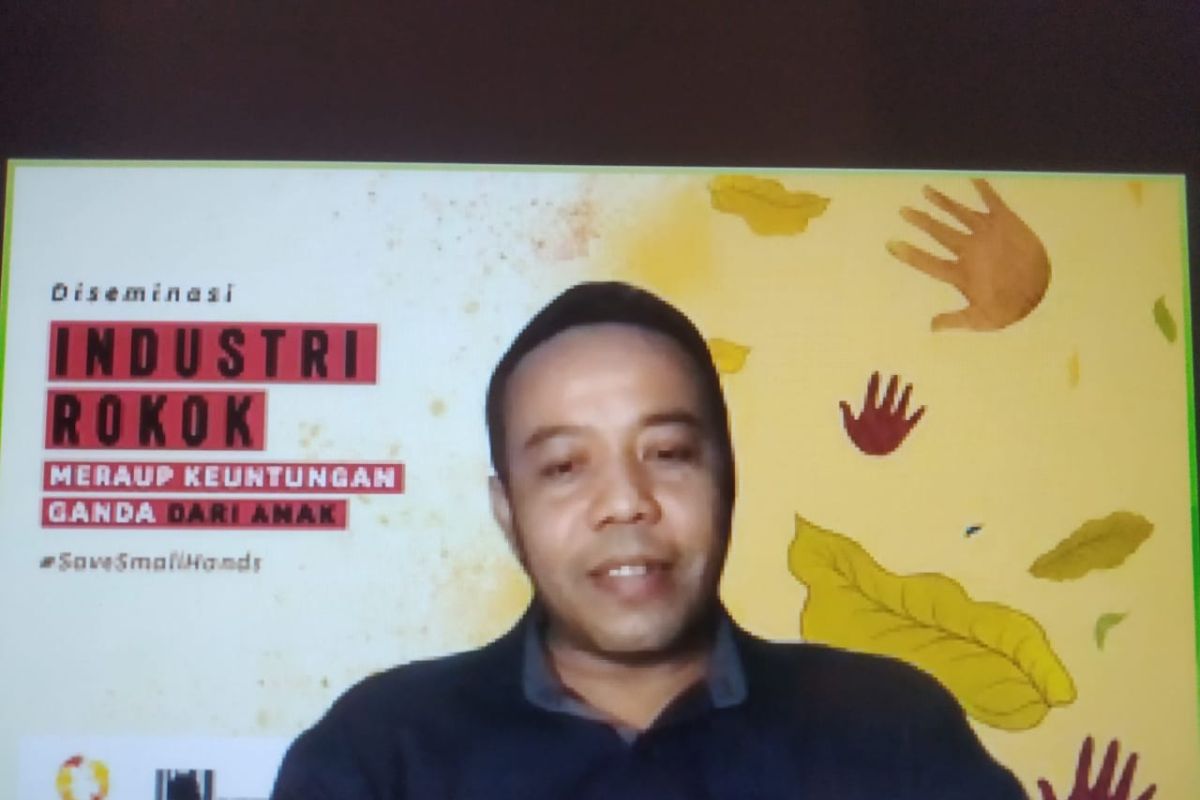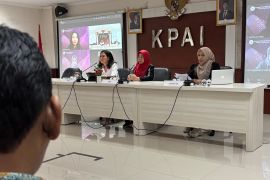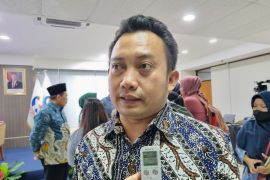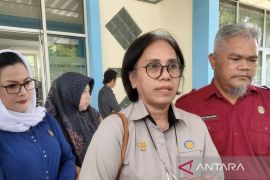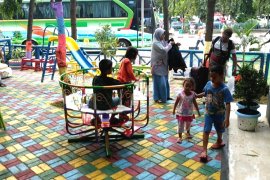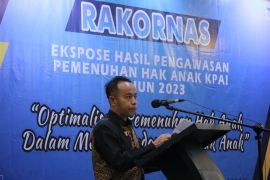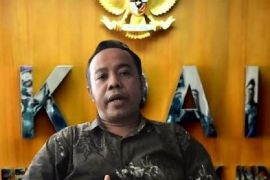"We must encourage the state to present children's rights, including the right to health," he said at the 'Dissemination of the Cigarette Industry, Gaining Double Benefits from Children' webinar, which was accessed here on Tuesday.
Such efforts still face challenges because of the habit of smoking in the community or family environment, he noted.
This has now become even more difficult since most children are primarily at home due to various restrictions enforced amid the COVID-19 pandemic, he added.
One of the ongoing efforts is to educate families so that they decide to protect children's rights, including families who earn an income from the tobacco and cigarette industries, he informed.
Related news: Government's efforts to reduce smoking prevalence not yet optimal
Putra said that his agency has continued to educate children on the dangers of smoking by encouraging children to become pioneers and reporters.
"We have a Children's Forum, from the national level to the district, city, and village levels," he added.
According to Putra, child and adolescent smokers are future consumers of the cigarette industry, therefore, their number needs to be suppressed.
"If teenagers don't smoke, the (cigarette) industry will close," he said.
The KPAI has also asked the local government to supervise children in the family environment so that they are not exposed to things that can interfere with their health.
He said his agency appreciates the efforts made by the government, which has issued Presidential Regulation Number 25 of 2021 concerning Child-Friendly District and City Policies, one of which contains Non-Smoking Areas.
However, he said, currently, only 324 districts and cities have local regulations related to Non-Smoking Areas. By 2024, the target is that 514 districts and cities throughout the country will have rules on non-smoking areas, he added.
Related news: Smoking lowers immunity, raises risk of exposure to COVID-19: Experts
Translator: Anita Permata, Raka Adji
Editor: Suharto
Copyright © ANTARA 2021
